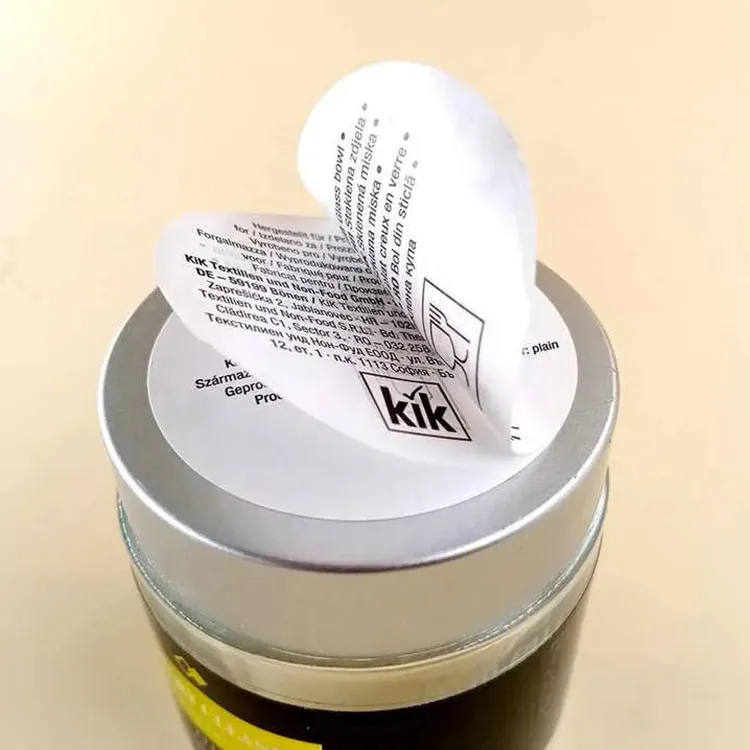Why Are Multi-Ply Labels Revolutionizing Packaging?
2024-11-26
In the world of modern packaging, maximizing space while delivering clear, detailed information is a constant challenge. Enter multi-ply labels, the innovative solution that combines functionality, aesthetics, and efficiency. But what exactly are multi-ply labels, and why are they becoming a game-changer in industries ranging from pharmaceuticals to consumer goods?
What Are Multi-Ply Labels?
Multi-ply labels, also known as extended content labels, are specialized labels designed with multiple layers to provide extra space for information. By using a compact, peel-back design, these labels allow brands to include comprehensive details without compromising the packaging’s visual appeal.
Typically, a multi-ply label consists of:
- A base layer adhered to the product.
- One or more fold-out layers that expand to reveal additional content.
This innovative design ensures that the label stays secure while offering easy access to the information inside.
Why Are Multi-Ply Labels So Popular?
1. Space Optimization
One of the most significant benefits of multi-ply labels is their ability to provide extended content without increasing the size of the product or packaging. This is particularly useful for:
- Including multilingual instructions.
- Listing regulatory or compliance information.
- Providing detailed usage guidelines or promotional content.
2. Enhanced Compliance
In industries like pharmaceuticals or chemicals, regulatory requirements often demand extensive product information. Multi-ply labels ensure that every detail, from dosage instructions to safety warnings, is included without cluttering the primary packaging.
3. Cost-Effective Marketing
Brands can use the extra space for promotional purposes, such as coupons, recipes, or cross-selling opportunities. This dual-purpose approach eliminates the need for separate inserts, reducing costs and waste.
4. Eco-Friendly Options
Many multi-ply labels are designed with sustainability in mind, using recyclable materials and reducing the need for additional printed materials like leaflets or booklets.
Where Are Multi-Ply Labels Most Commonly Used?
1. Pharmaceutical and Healthcare Products
Multi-ply labels are indispensable in the pharmaceutical industry, where compliance and patient safety are paramount. They provide enough space for:
- Detailed medical instructions.
- Side effect warnings.
- Multilingual content for global distribution.
2. Food and Beverage Packaging
In the competitive food and beverage sector, multi-ply labels serve to:
- Highlight nutritional facts and allergen warnings.
- Share recipes or pairing suggestions.
- Promote seasonal or limited-edition offers.
3. Personal Care Products
Cosmetic and skincare brands use multi-ply labels to include:
- Ingredient lists.
- Application tips and best practices.
- Multi-language descriptions for global markets.
4. Chemical and Industrial Products
Hazardous materials and industrial chemicals often require detailed safety instructions. Multi-ply labels ensure this information is readily available while maintaining the product’s professional appearance.
How Do Multi-Ply Labels Enhance the Consumer Experience?
For consumers, multi-ply labels offer a seamless and convenient way to access product details without added effort. The peel-back or fold-out design is intuitive and easy to use, ensuring the information is accessible while maintaining the product’s sleek design.
Moreover, multi-ply labels can also engage consumers by including interactive or QR code elements that lead to digital content, such as how-to videos or product registration pages.
What Should Brands Consider When Choosing Multi-Ply Labels?
To make the most of multi-ply labels, brands should focus on:
- Material Quality: Ensure the labels are durable and resistant to tearing, especially for frequently handled products.
- Design Consistency: Maintain branding and visual appeal while incorporating extended content.
- Ease of Use: The layers should peel back or unfold smoothly, enhancing the consumer experience.
- Adhesive Strength: Strong adhesive ensures the label stays securely in place, even after multiple uses.



